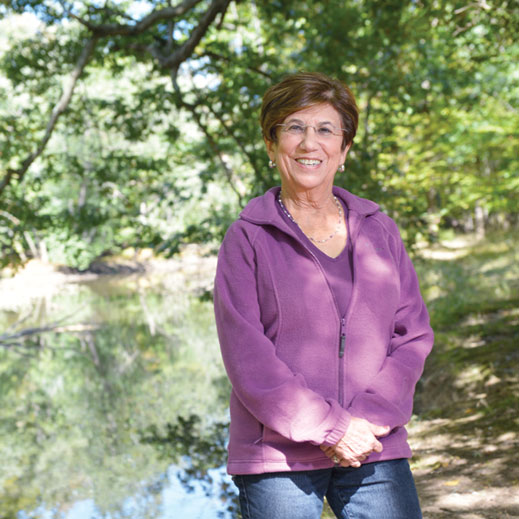Robert Laudise earned a bachelor’s degree from Union College in 1952 and a PhD from MIT in 1956, both in chemistry. He spent his career at Bell Labs, now Alcatel-Lucent, where he did pioneering work on quartz crystals for use in modern electronics. He was a leader in national materials policy and was a member of the National Academy of Sciences. He died in 1998. What he most wanted in life was for his five children and the generations that follow them to live in a healthy and sustainable environment.

“As a boy, my husband crossed a stream on his way to school that changed color depending on the dyes used at the carpet mill upstream. Later, he remembered ‘No Swimming’ signs at the nearby lake because it was polluted. It really struck him. He studied chemistry as a grad student at MIT and later became a big proponent of industrial ecology. When he died of cancer at 67, it was in the back of my mind to establish a scholarship at MIT in his memory. He thought the world of MIT, because it offered so many promises for the future. He felt an MIT education, and a background in science, was the key to solving the world’s technical and social problems. The scholarship is an opportunity to remember him, but it’s also an opportunity to continue his work into the future. Bob said, ‘My dream for the 21st century is to combine a healthy economy with a clean environment.’ His dream doesn’t happen without people. And if these young recipients will go on to do their work in science and technology and think about the environment first, they will be able to do the work that improves life for future generations.”
Please consider your own scholarship gift to MIT.
For information, contact Rob Scott: 617-253-3394; rscott@mit.edu.
Or visit giving.mit.edu.
Keep Reading
Most Popular
Large language models can do jaw-dropping things. But nobody knows exactly why.
And that's a problem. Figuring it out is one of the biggest scientific puzzles of our time and a crucial step towards controlling more powerful future models.
How scientists traced a mysterious covid case back to six toilets
When wastewater surveillance turns into a hunt for a single infected individual, the ethics get tricky.
The problem with plug-in hybrids? Their drivers.
Plug-in hybrids are often sold as a transition to EVs, but new data from Europe shows we’re still underestimating the emissions they produce.
Stay connected
Get the latest updates from
MIT Technology Review
Discover special offers, top stories, upcoming events, and more.